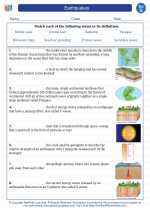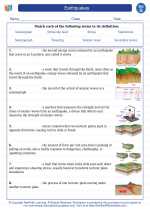Commensalism
Commensalism is a type of relationship between two species in which one species benefits while the other is neither helped nor harmed. This interaction is often seen in the natural world, where one organism uses another for a specific purpose without affecting the host organism in any significant way.
Examples of Commensalism
One example of commensalism is the relationship between barnacles and whales. Barnacles attach themselves to the skin of whales and benefit from the constant movement and feeding opportunities that the whale provides. The whale is not significantly affected by the presence of the barnacles.
Another example is the relationship between certain bird species and large herbivores. The birds feed on the insects and parasites found on the herbivores' skin, benefiting from a readily available source of food. The herbivores are not affected by the presence of the birds.
Study Guide
- Definition: What is commensalism and how does it differ from other types of symbiotic relationships?
- Examples: Provide at least two examples of commensalism in the natural world and explain how each species benefits from the relationship.
- Identification: Given a scenario, identify whether the interaction between two species is an example of commensalism or another type of symbiotic relationship.
- Impact: Discuss the ecological impact of commensalism on the populations and ecosystems involved.
- Real-life Applications: Research and present a real-life case study or news article that demonstrates commensalism in action, and discuss its implications.
◂Science Worksheets and Study Guides Seventh Grade. Earthquakes

 Activity Lesson
Activity Lesson
 Worksheet/Answer key
Worksheet/Answer key
 Worksheet/Answer key
Worksheet/Answer key
 Worksheet/Answer key
Worksheet/Answer key
 Worksheet/Answer key
Worksheet/Answer key
 Worksheet/Answer key
Worksheet/Answer key
 Vocabulary/Answer key
Vocabulary/Answer key
 Vocabulary/Answer key
Vocabulary/Answer key
 Vocabulary/Answer key
Vocabulary/Answer key
 Vocabulary/Answer key
Vocabulary/Answer key
 Vocabulary/Answer key
Vocabulary/Answer key
 Vocabulary/Answer key
Vocabulary/Answer key
 Vocabulary/Answer key
Vocabulary/Answer key
